Palm Oil
The Grease of Empire
by Max Haiven
Out now, from Pluto Press
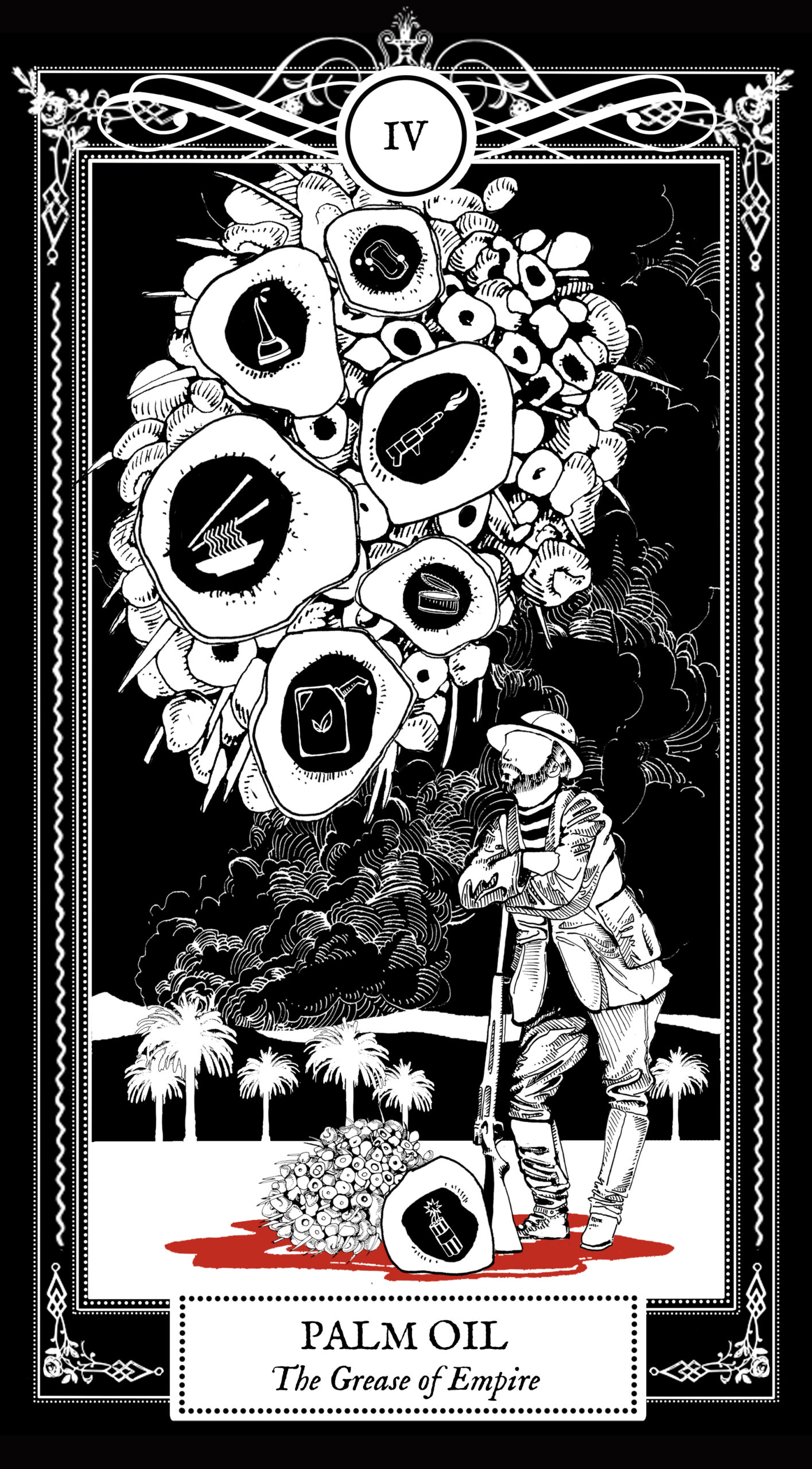
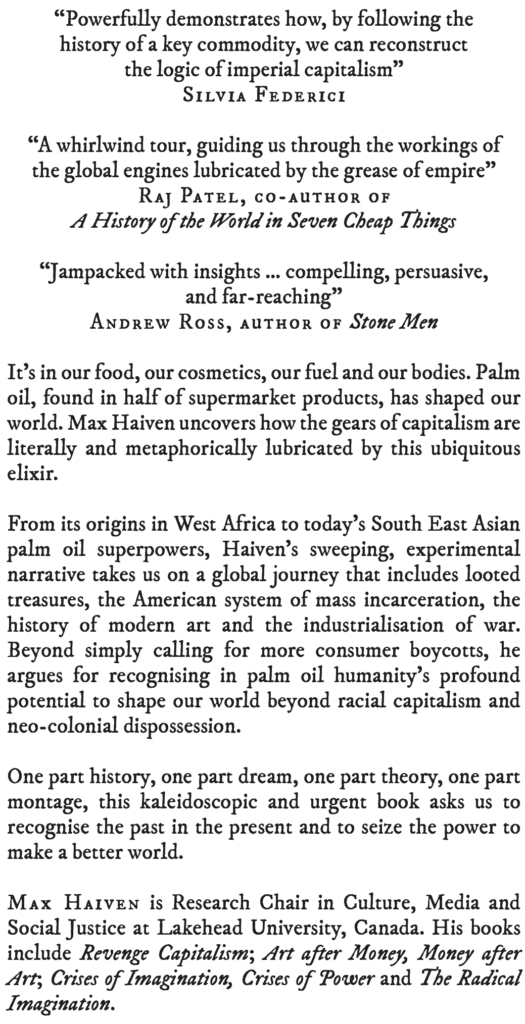
The above video was preared for the Berliner Gazette’s 2022 project After Extractivism.
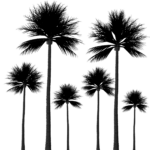
Description
It’s in our food, our cosmetics, our fuel and our bodies. Palm oil, found in half of supermarket products, has shaped our world. Max Haiven uncovers how the gears of capitalism are literally and metaphorically lubricated by this ubiquitous elixir.
From its origins in West Africa to today’s Southeast Asian palm oil superpowers, Haiven’s sweeping, experimental narrative takes us on a global journey that includes looted treasures, the American system of mass incarceration, the history of modern art and the industrialisation of war. Beyond simply calling for more consumer boycotts, he argues for recognising in palm oil humanity’s profound potential to shape our world beyond racial capitalism and neo-colonial dispossession.
One part history, one part dream, one part theory, one part montage, this kaleidoscopic and urgent book asks us to recognise the past in the present and to seize the power to make a better world.
Table of Contents
Whose grease?
Whose punishment?
Whose fetish?
Whose weapon?
Whose fat?
Whose surplus?
Whose sacrifice?
Whose story?
Endorsements




Interviews, Excerpts & Articles
Reviews







Media
- New Books Network interview on Palm Oil: The Grease of Empire - 51min
-
Using radical imagination to confront our reliance on palm oil
CBC's Sunday Magazine - 24min -
Max Haiven unmasks the global entanglement & human sacrifice that the palm oil industry demands
Pretty Heady Stuff podcast - 92min -
Grease Of Empire: Palm Oil & Regimes Of Human Sacrifice
Last Born in the Wilderness podcast - 63min -
To Be Human in this Age is to Be Frustrated
House of Modern History podcast - 49min -
Palm oil is everywhere–what can it tell us?
Earth Eats podcast (WFIU) - 52min -
Palm Oil, Empire and Globalized Capitalism
Gateway podcast (Al Bawaba) - 32mins


Events
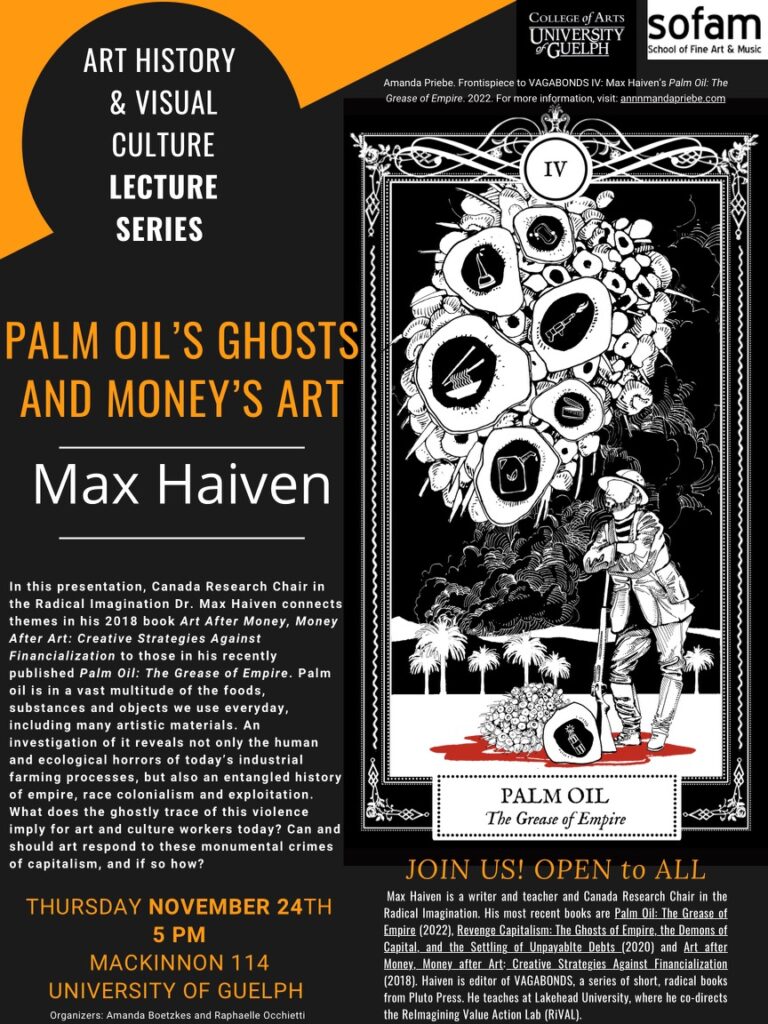
Past
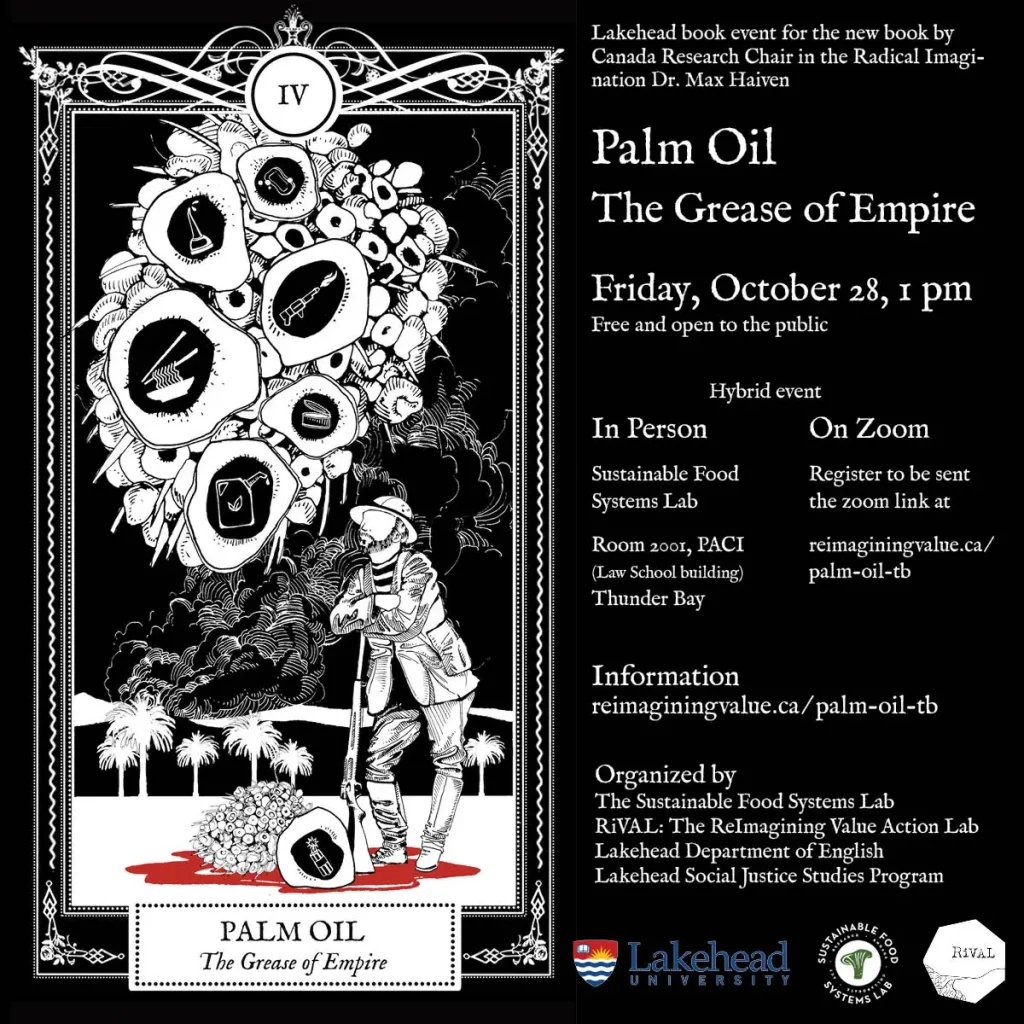
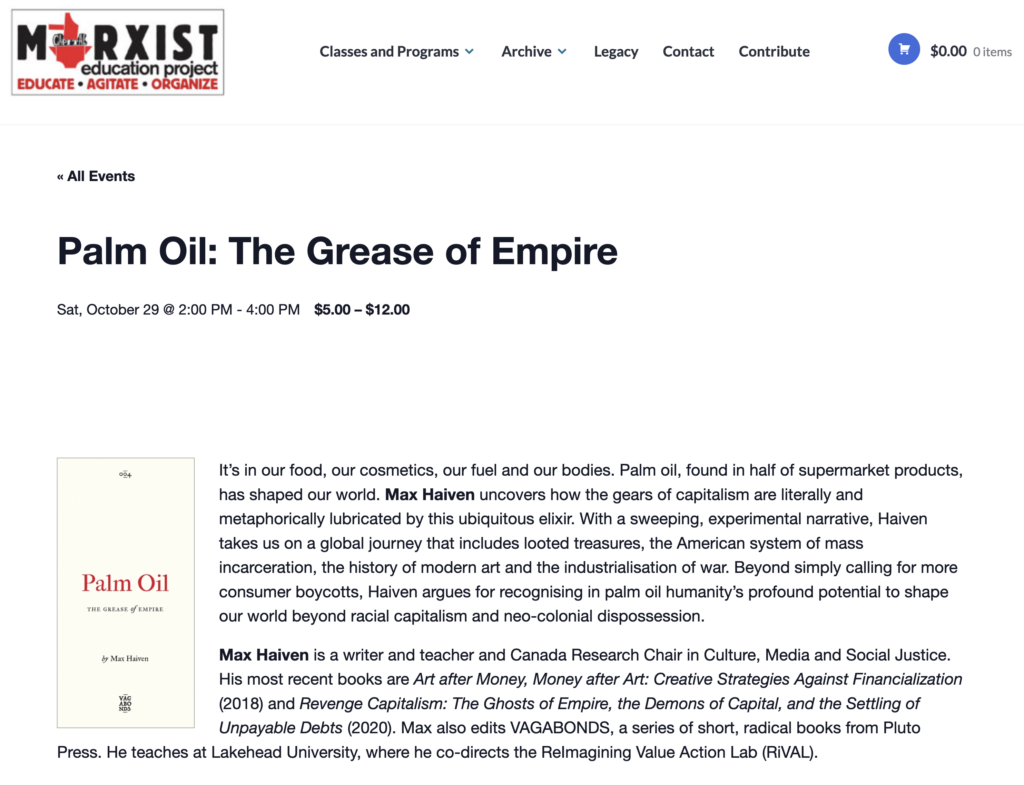
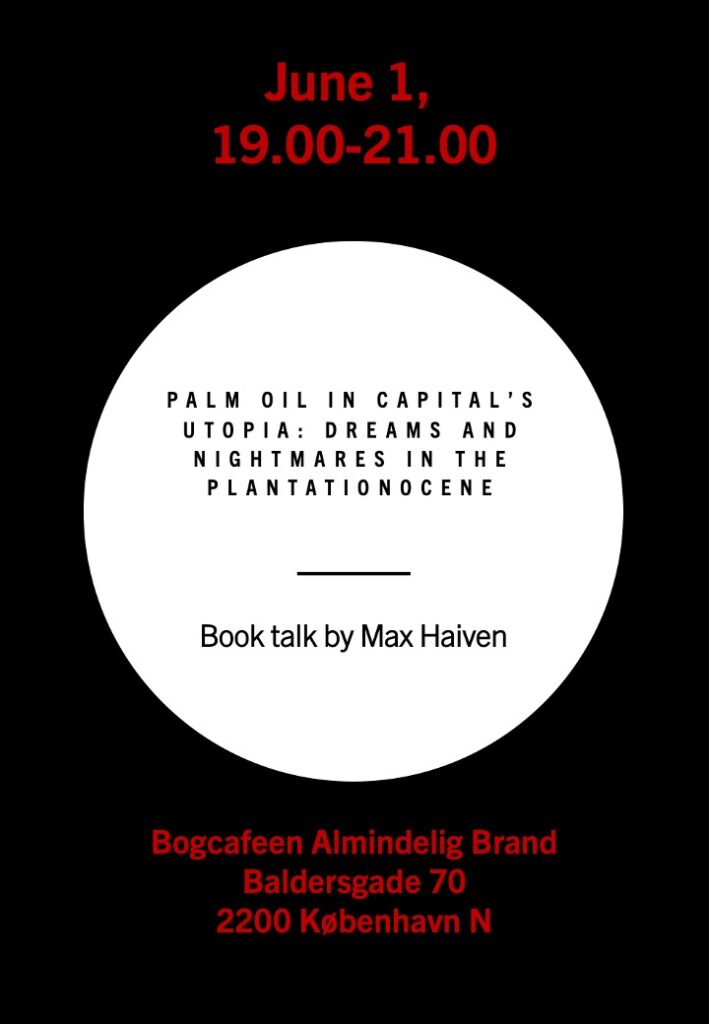
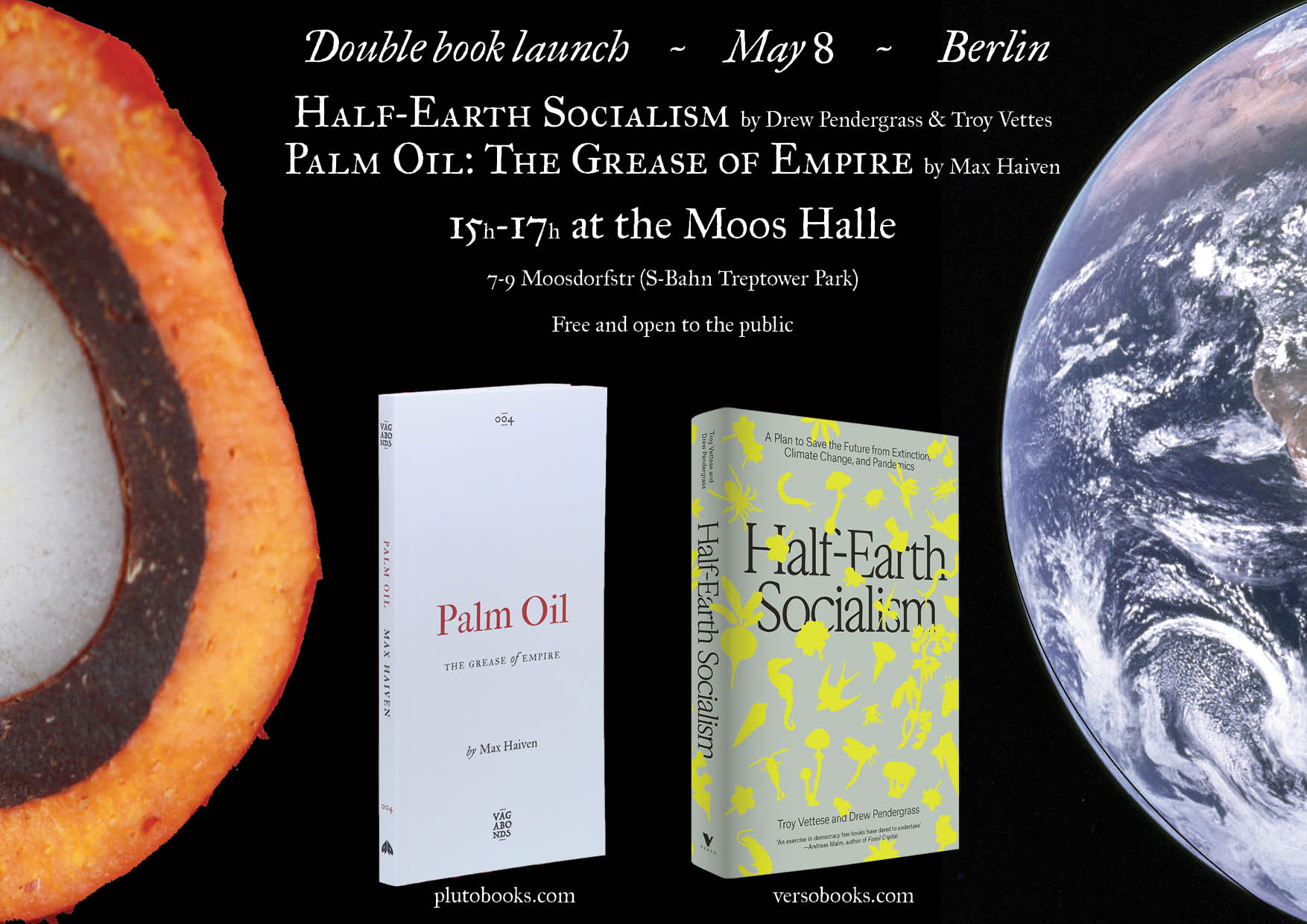
Free and open to the public.
A double book launch event for:
Half Earth Socialism: A Plan to Save the Future from Extinction, Climate Change and Pandemics
by Drew Pendergrass and Troy Vettese
and
Palm Oil: The Grease of Empire
by Max Haiven
Moderated by Cassie Thornton
Max Haiven will be joined by economic anthropologist and activist Julio Linares and researcher and critical practitioner Sina Ribak.
Troy Vetesse and Drew Pendergrass will be joined by Francis Tseng, designed of the half.earth simulation.
The event takes place in the hall of the Moos community at 7-9 Moosdorfstr. There will be snacks and drinks for sale.
Organized by RiVAL: The ReImagining Value Action Lab. Hosted by the moos residency program.
Supported by Pluto Press and Verso Books.
In cooperation with Berliner Gazette’s “After Extractivism” project.
With beer sales from FemAle.
Access and hygiene
- The moos hall and its toilets are accessible to those using wheelchairs, though not certified as such.
- Please avoid wearing strong scents.
- The event will be in English.
- Masks are recommended, though the space is well-ventilated.
- Attendees are kindly asked to test for Corona before arriving (there is a test centre next to the Treptower Park station, on the river)
Schedule
- 15h – doors open
- 15h30 – panel: Palm Oil
- 16h15 – intermission
- 16h30 – panel: Half Earth Socialism
- 17h15 – party in the hoff